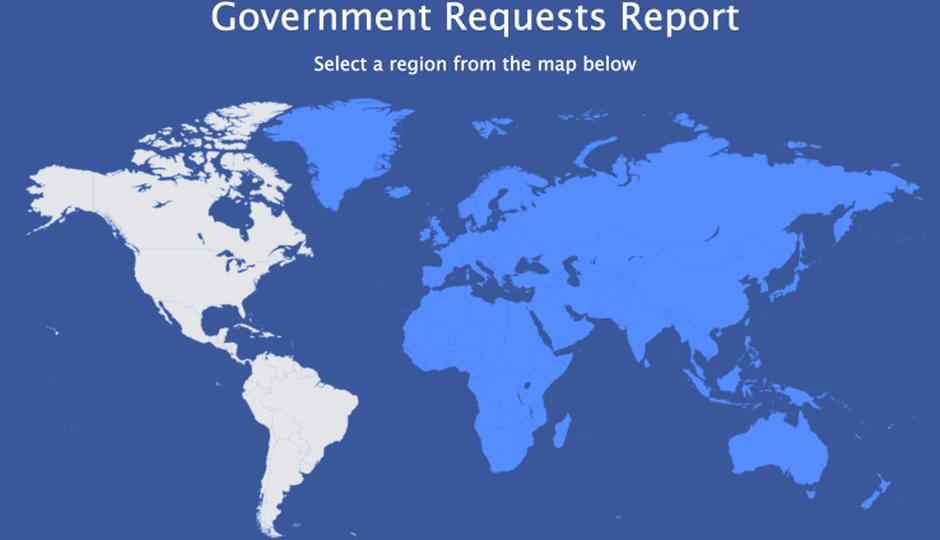Facebook’s latest report highlights increase of data requests from India

India made about 5,473 requests and sought 7,281 users/accounts while Facebook produced some data for 44.69% of requests.
Facebook has just released its latest transparency report that reveals an increase for data requests from countries such as India, and decrease from nations such as the United States and Germany.
According to Facebook, data requests rose to 35,051 in the second half of 2014 from 34,946 in the first half. The social network blocked 9,707 pieces of content, about 11 percent higher than the first half. India made 5,473 requests and sought 7,281 users/accounts. Facebook produced some data for 44.69% of requests. 5,832 number of pieces of content restricted. Check out the India stats here.
“It’s a challenge to maintain one set of standards that meets the needs of a diverse global community. For one thing, people from different backgrounds may have different ideas about what’s appropriate to share — a video posted as a joke by one person might be upsetting to someone else, but it may not violate our standards,” says Facebook in a detailed blog post.
“This is particularly challenging for issues such as hate speech. Hate speech has always been banned on Facebook, and in our new Community Standards, we explain our efforts to keep our community free from this kind of abusive language. We understand that many countries have concerns about hate speech in their communities, so we regularly talk to governments, community members, academics and other experts from around the globe to ensure that we are in the best position possible to recognize and remove such speech from our community. We know that our policies won’t perfectly address every piece of content, especially where we have limited context, but we evaluate reported content seriously and do our best to get it right.”
Internet companies have been publishing transparency reports for a while. These reports give an idea about the governments across the world trying to access details of Internet users. While the governments have their owns reasons for accessing requests, privacy advocates have opposed the move.




